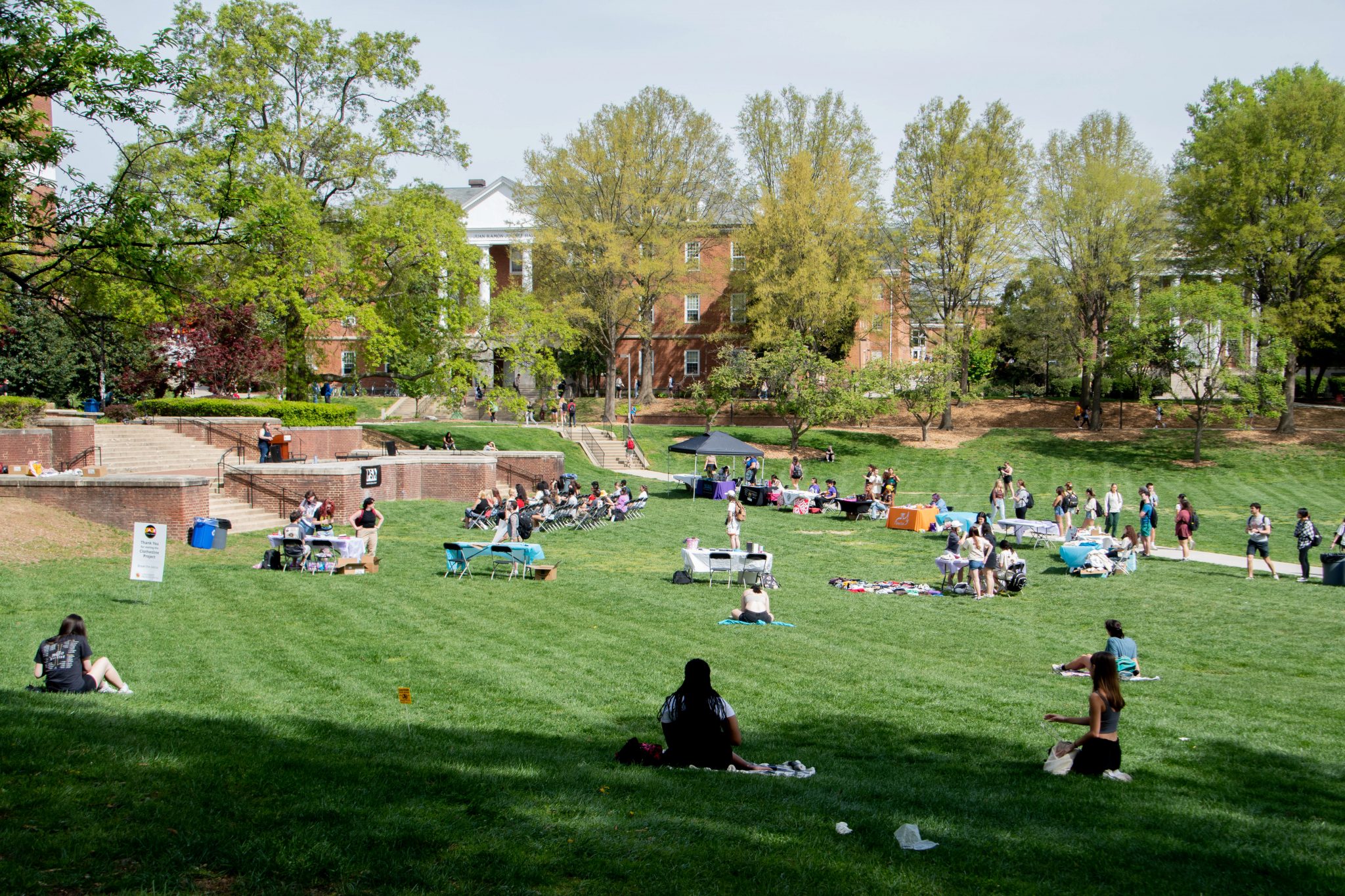By Akshaj Gaur and Natalie Weger
Staff writers
When Ethan Levine encountered his abusive former partner at Northeastern University in 2006, he sought the support of his university’s counseling center to help him persist through traumatic flashbacks.
But Levine, now an author and LGBTQ+ activist, was instead met with a response that left him hopeless.
“We don’t have anyone here who can speak to someone like you,” his university’s counselor told him at the time.
This defining moment set Levine, a transgender man, on a mission to provide resources and support for other transgender, and LGBTQ+, survivors of sexual assault.
Levine was one of several keynote speakers at Preventing Sexual Assault’s annual Occupy McKeldin event Friday, where University of Maryland students and faculty gathered on McKeldin Mall to raise awareness of sexual assault.
The eight-hour event featured eight guest speakers, chalking, therapy dogs, thrift shop pop-ups and raffles. It also included the new addition of a mental health resources table to support sexual assault victims on this university’s campus.
This year’s event theme, “I ask,” highlighted the importance of consent and respect in combatting sexual assault, according to PSA co-president Damiana Colley, a junior criminology and criminal justice and psychology major.
[Advocates of sexual assault “Take Back the Night” with the Clothesline Project]
Brandee Kaplan, a sophomore women, gender and sexuality studies major and PSA’s co-chair of diversity, intersectionality and equity, emphasized the significance of this year’s theme Friday.
“Everybody has to consent and everybody should ask for consent, always, no matter what,” Kaplan said. “We’re trying to foster a general culture of consent on campus.”
Colley hoped the event would bring awareness to a prevalent issue on campus that she felt has been neglected in the past, but struck an optimistic tone about PSA’s relationship with this university and its commitment to preventing sexual assault in the future.
“I think we’re finally starting to foster that relationship [with administrators] that we’ve wanted for so long,” Colley said. “We still have a lot of steps to complete as far as connecting with administration and really holding them accountable … but I think it will be great moving forward,”
More than 15 different student groups sponsored the event, including several fraternities and sororities.
Junior government and politics major Josephine Fallon, who has friends involved in fraternities and sororities at this university, said she would like to see more discussions about sexual assault in Greek life.
[‘A small win’: Maryland advocates praise passage of bill expanding gender-affirming care]
“The statistics and all the anecdotal stories, to me, show that there is still a big issue here, especially with that group of people,” Fallon said.
This year’s event also highlighted the importance of diversity and inclusion in addressing sexual assault on campus.
Denise Demontagnac, a sophomore government and politics major and president of Black Girls Vote, a student organization focused on increasing political engagement among Black women, hosted a table at Friday’s event. She aimed to raise awareness during the event about issues affecting Black women in relation to sexual assault on campus.
“We’re here to educate on the over-sexualization of young Black women,” Demontagnac said. “Society puts these expectations on [Black women] that, if they wear tighter clothing, then they’re asking … to be sexually assaulted.”
Attending Occupy McKeldin was important for Demontagnac to show support for Black women on campus who feel like they aren’t heard when speaking up about sexual assault and harassment.
Anna Gerstein, a senior public policy major and PSA co-president, said that creating a more inclusive environment was a priority for this year’s Occupy McKeldin event.
“This semester, we have put … emphasis on restructuring the narrative away from the white, cisgender, straight woman being the prime voice of sexual violence survivors and amplifying the voice of marginalized identities to represent different voices,” Gerstein said.



